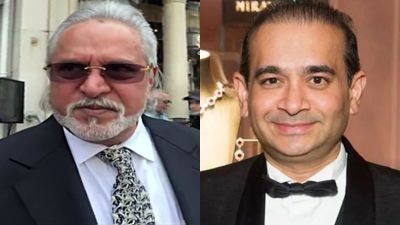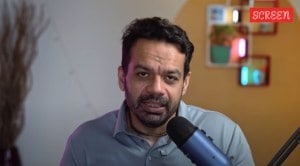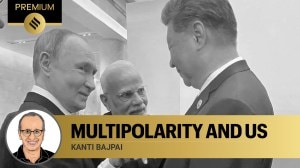Click here to join Express Pune WhatsApp channel and get a curated list of our stories
Don’t just raise minimum marriage age, also address lack of access to education, jobs: experts
On December 15, the Union Cabinet cleared the proposal to raise the minimum age of marriage for women from 18 to 21 years.
 "Early marriage has societal sanction and is ironically seen as a solution by the communities, not a problem,” she said. (Representational)
"Early marriage has societal sanction and is ironically seen as a solution by the communities, not a problem,” she said. (Representational)Activist Dr Manisha Gupte feels that raising women’s minimum age of marriage to 21 years without also taking steps to address the underlying causes behind early marriage, such as lack of access to education or jobs, is not the way forward and will adversely affect rural girls.
“The government has put the entire onus on parents without a plan or budgetary allocation to increase girls’ access to higher education, jobs or to assure public safety and subsidised transport facilities. Punishing parents isn’t the way forward. Thwarted education inevitably leads to early and child marriage. This move is going to adversely affect rural girls the most,” said Gupte, co-convenor, MASUM, Pune.
On December 15, the Union Cabinet cleared the proposal to raise the minimum age of marriage for women from 18 to 21 years.
This move will extend parental control over their children’s romantic lives by three years whereas they themselves could get their daughters married much before, Gupte said.
When youth can vote at 18 in our country, they should also be considered capable of making decisions about their own lives, said Gupte. No person should be forced to marry a day before they wish to or to someone they don’t wish to marry, and people should also have the right never to marry as well, she added.
The government should make higher education, hostel facilities, job skills training and freedom from violence in public and private spheres a right for all girls. This will automatically result in increased age at marriage, she said.
Poonam Muttreja, executive director, Population Foundation of India, said that while the concern with early marriage is a step in the right direction, legal action on this issue is akin to treating symptoms instead of the underlying causes, which have allowed such a practice to exist for centuries. A whole range of factors such as deep-rooted gender inequality, regressive social norms, financial insecurity, lack of quality education and employment opportunities together contribute to the incidence of early and forced marriages, she added.
“Early marriage has societal sanction and is ironically seen as a solution by the communities, not a problem,” she said.
Click here to join Express Pune WhatsApp channel and get a curated list of our stories







